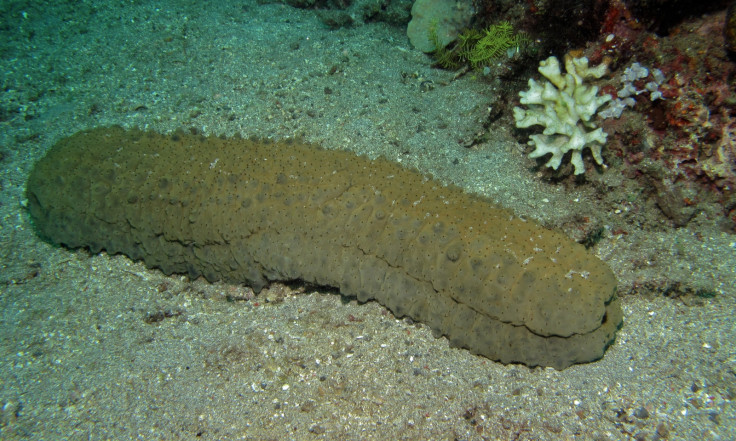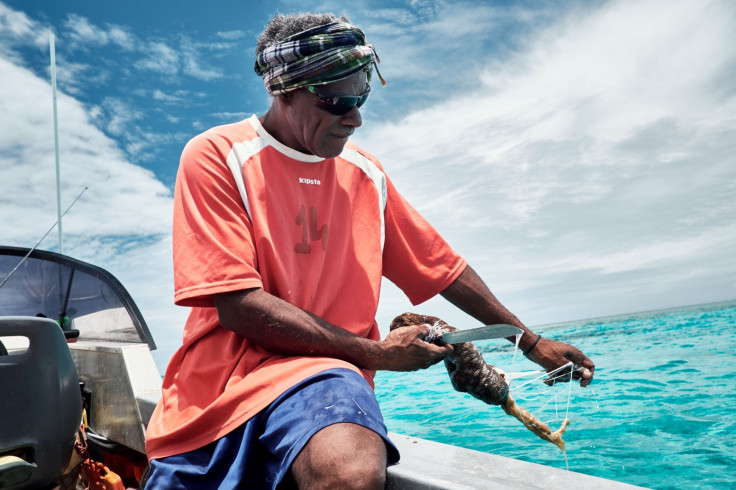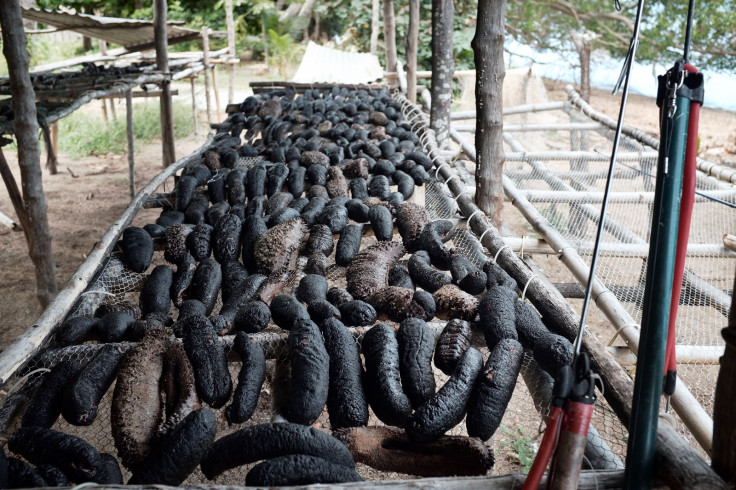Hong Kong's craze for sea cucumbers is demolishing populations as far away as Mexico
There are more than 1,000 species of these strange marine creatures.
A 'gold rush' for sea cucumbers is threatening coastal ecosystems along the Yucatán Peninsula in Mexico, as fisheries move in and push the creatures towards local extinction.
Sea cucumbers are slow-growing animals that look quite like a cucumber, and live on the sea floor in many parts of the world. They are a delicacy in Asia, particularly Hong Kong, and can fetch hundreds to thousands of dollars per pound.
Populations of sea cucumbers in South-east Asia have crashed due to overfishing in recent years. To fuel the demands of the luxury food market, fishing has moved on elsewhere. In recent years, Mexico's Yucatán Peninsula has become another hotspot for sea cucumber fishing.
Until recently, octopus, spiny lobster, red grouper and snapper were the main species fished in Río Lagartos, a small town on the peninsula. The first permits to harvest sea cucumbers were issued in the area in 2013.
Since then, a 'gold rush' for sea cucumbers has threatened to overwhelm the town and the delicate ecosystem the animals live in, according to a study published in the journal Global Environmental Change.
"The market itself has an increasingly voracious appetite. As it arrives in these new places the price for these sea cucumber has continued to rise," study author Nathan Bennett of the University of British Columbia, Canada, told IBTimes UK.
Earlier in May, two men were indicted for smuggling $17.5 million (£13.7m) worth of sea cucumbers into the US from the Yucatán Peninsula.
"Soaring demand has spurred sea cucumber booms across the globe," added Mary Kaplan-Hallam in a statement, who is also a study author, and carried out the research during her master's degree at the University of British Colombia.

"For many coastal communities, sea cucumber isn't something that was harvested in the past. Fisheries emerged rapidly. Money, buyers and fishers from outside the community flooded in."
The problem with sea cucumbers isn't unique. It's common to many different marine animals that come into fashion in seafood cuisine, such as abalone and sharks.
A whole-ecosystem problem
Sea cucumbers take a long time to reach maturity and reproduce. This makes them vulnerable to population collapse, as they take a very long time to recover from intense fishing.

Long-term threats such as climate change are often the focus of research on declining biodiversity in coastal waters. But sudden shocks to the system can be just as threatening to an ecosystem's survival and a community's livelihood, says Bennett.
The sea cucumber rush is also bad news for other species that share the ecosystem.
"It's not just the sea cucumber that can crash when there's all these new people fishing in the area. These people may start to harvest other stocks and other fish when fishing for sea cucumber," Bennett said.
"And for communities themselves, who may have fished in those areas on a small scale for a long time, there are new people rushing in trying to make money. Sometimes it's individuals, sometimes corporations coming in," Bennett said. "This undermines the sustainability of local stocks in different places around the world."

Irreversible damage?
The changes to the coastal ecosystem near towns like Río Lagartos have happened so suddenly that it's hard to know what will happen next.
"That's one of the big questions that we have about these types of scenarios," Bennett said. "Will everybody move away who moved here to do harvesting? Will the ecosystem rebound, along with the sea cucumbers? These are unanswered questions as yet."
But as demand for sea cucumbers doesn't seem to be on the decline, the only almost certain thing is that the rush for sea cucumbers will move on to another coastal town.

© Copyright IBTimes 2025. All rights reserved.






















